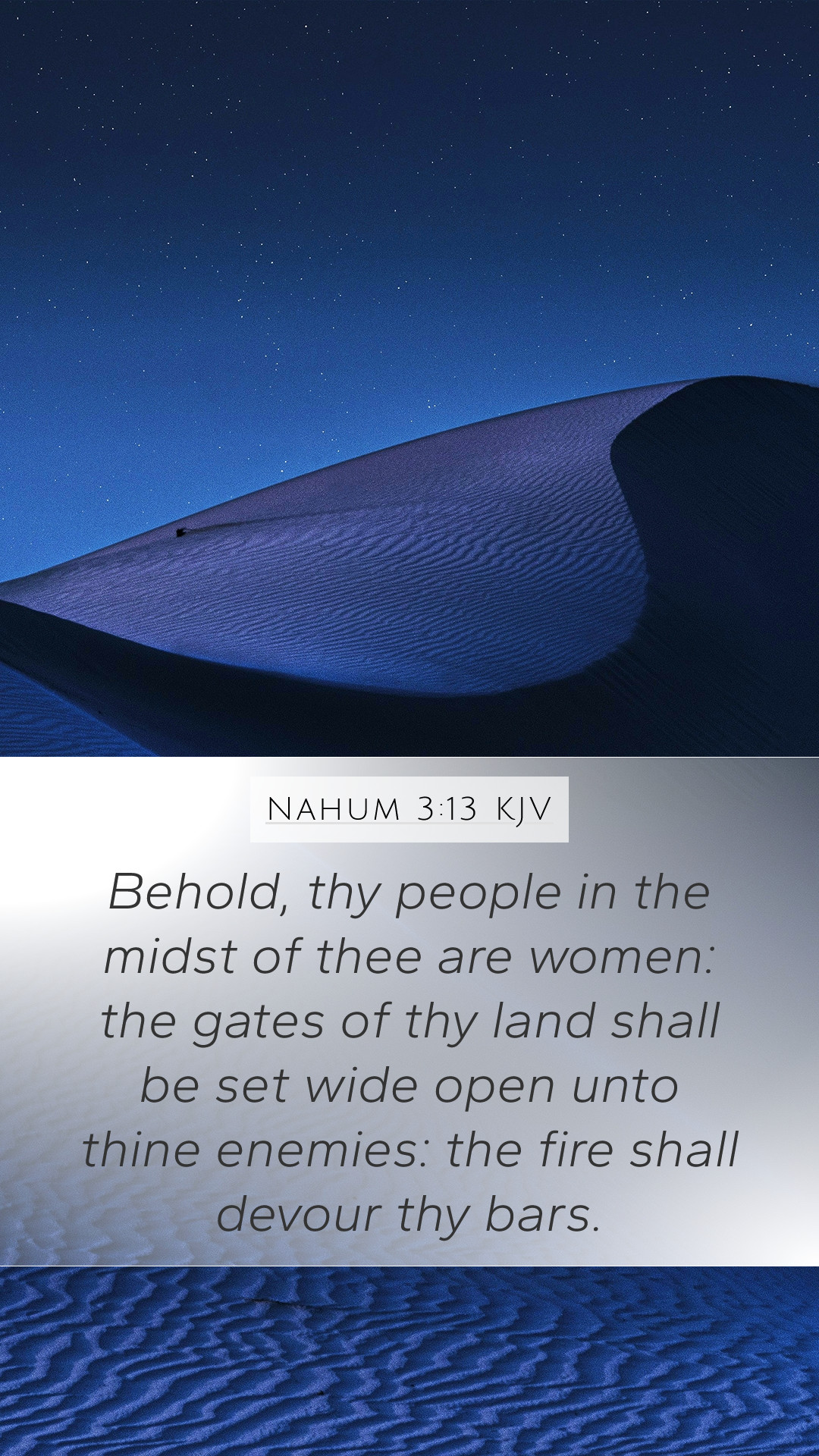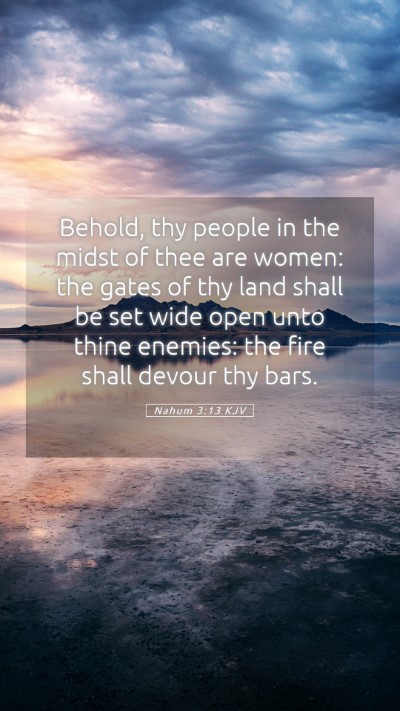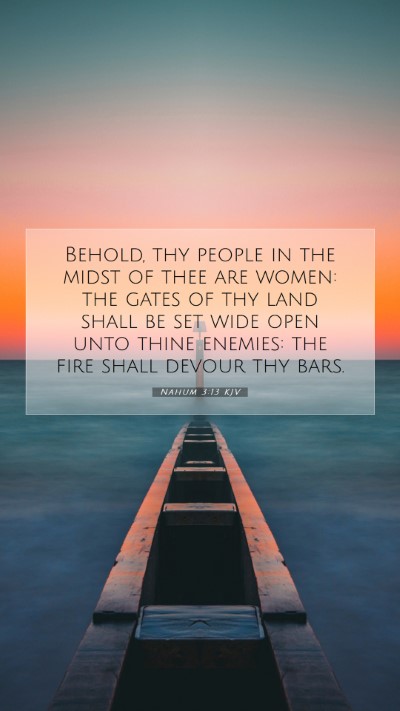Old Testament
Genesis Exodus Leviticus Numbers Deuteronomy Joshua Judges Ruth 1 Samuel 2 Samuel 1 Kings 2 Kings 1 Chronicles 2 Chronicles Ezra Nehemiah Esther Job Psalms Proverbs Ecclesiastes Song of Solomon Isaiah Jeremiah Lamentations Ezekiel Daniel Hosea Joel Amos Obadiah Jonah Micah Nahum Habakkuk Zephaniah Haggai Zechariah MalachiNahum 3:13 Meaning
What is the meaning of Nahum 3:13?
Behold, thy people in the midst of thee are women: the gates of thy land shall be set wide open unto thine enemies: the fire shall devour thy bars.
Nahum 3:13 Bible Verse Meaning
Nahum 3:13 - Bible Verse Meaning and Interpretation
Nahum 3:13 reads: "Behold, thy people in the midst of thee are women: the gates of thy land shall be set wide open unto thine enemies: the fire shall devour thy bars."
This verse from the Book of Nahum carries profound implications regarding the vulnerability and impending doom faced by Nineveh. It is essential to explore it through the lens of Bible verse commentary and Scripture analysis.
Contextual Understanding
Nahum prophesies against Nineveh, the capital of Assyria, a dominant empire known for its cruelty and oppression. The prophecy comes at a time when God’s judgment is about to befall the city due to its relentless sinfulness.
Exegesis of Key Phrases
-
"Thy people in the midst of thee are women"
This metaphor indicates the weakness and vulnerability of Nineveh’s people. In the ancient Near East context, the comparison to women suggests a loss of strength, fortitude, and protection. Matthew Henry notes that it symbolizes the dominance of a foe who will easily overtake them.
-
"The gates of thy land shall be set wide open unto thine enemies"
The imagery of open gates signifies a complete lack of defense against invasion. Adam Clarke emphasizes that it illustrates how unprepared and exposed Nineveh will be. The gates symbolize access, and their openness represents a breakdown in security.
-
"The fire shall devour thy bars"
This phrase reinforces the inevitability of destruction. It signifies that even the strongest fortifications (the bars) will be consumed. Albert Barnes suggests that this serves as a vivid prediction of the total devastation that awaits Nineveh.
Summary of Interpretations
Collectively, these phrases form a dire warning about the consequences of Nineveh's choices. The commentary from Henry, Barnes, and Clarke converge on the idea that this verse starkly illustrates God’s judgment against a nation that has turned away from righteousness. The use of feminine imagery represents the inherent weakness brought about by sin and disobedience.
Application of This Verse
For modern readers, the verse serves as a cautionary tale about the fragility of power without moral and spiritual foundation. It invites reflection on what it means to remain steadfast in faith, especially in times of temptation and moral decline.
Related Bible Verses
- Isaiah 3:12 - Addresses the vulnerability of the people due to poor leadership.
- Jeremiah 50:16 - Discusses the destruction of Babylon, drawing parallels to Nineveh.
- Revelation 18:8 - Speaks of the judgment of a great city, akin to Nineveh, for its sins.
Conclusion
The passage in Nahum 3:13 serves as a powerful reminder of the consequences of abandoning righteousness. Through thoughtful Bible verse interpretations and understanding Scripture with the help of public domain commentaries, readers can glean insights that are relevant not only in historical context but also in modern applications.
Further Study Resources
- Bible study groups focusing on Old Testament prophecies.
- Online Bible study courses that delve into minor prophets.
- Bible study guides that analyze the Book of Nahum.


